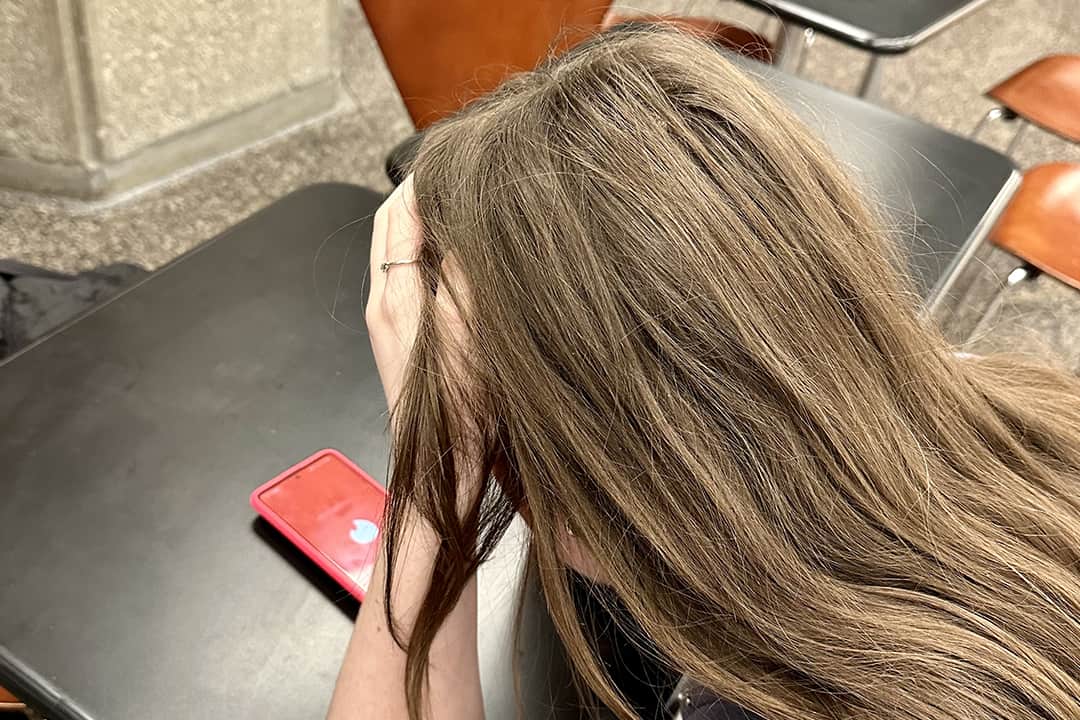Dating in the twenty-first century is far from glamorous. Between being ghosted, catfished, and having to put up with the same nauseatingly cringy pickup line over and over again — to name a few of today’s dating struggles — it’s easy to claim that finding love just isn’t what it used to be: that it is more trouble than it’s worth and that it leaves us feeling self-critical and less confident.
If you couldn’t tell already, I have no particular love for dating apps. I don’t believe they work; everywhere I turn, I hear about a failed online relationship or a dating app horror story. Just about everyone has had, or knows someone who has had, some type of foray into online dating, and can relate to the love-hate relationship with dating apps that ensues from it.
Feelings of hopelessness, frustration, and burnout are common on dating apps — so much so that some apps have attempted to address the idea of “dating burnout.” Some of these ways are more performative than others, but I digress.
Multiple studies over the last half-decade have shown, however, that these feelings are not of your own making; they’re actually the impact of using the dating apps themselves.
The link between online dating and well-being
A study published in Information, Communication & Society in 2021 conducted by researchers at Erasmus University Rotterdam provided some insight into common claims about dating apps. The study took the form of a self-report survey of 296 Tinder users, investigating the association between Tinder users’ habits on the app and their well-being.
While they found associations between increased “joviality” and both compulsive usage of Tinder and using the app for relationship-seeking, the researchers still concluded that Tinder usage can “trigger more negative effects than positive.”
The problems with dating apps lie in the behaviours that their users engage in, such as making self-conscious social comparisons. These social comparisons involve measuring one’s own social status based on where one stands with others. These comparisons are particularly common when users feel unsuccessful in their online dating pursuits, and the researchers found they were associated with feelings of sadness and anxiety, as well as decreasing joviality.
This is by no means the first investigation into the impacts of dating apps on mental health. A similar 2020 study, published by researchers at Western Sydney University, found that people who used swipe-based dating applications (SBDAs) had higher psychological distress and depression compared to non-users. Even more concerning is that the Western Sydney University study also indicated that increased frequency and duration of SBDA usage increased the severity of these symptoms.
While these results do not prove unequivocally that dating apps are the sole contributor to the burnout you feel scrolling through potential matches, they’re definitely something worth noting before spiralling into thinking that you’ll never meet ‘the one’ simply because they didn’t pop up on your screen.
Why do we keep coming back?
However, despite the negative mental health effects, people do keep going back to the apps: in the Western Sydney University study, 26.1 per cent of SBDAs users, both current and past, met more than five people during their time on the dating app. This may be explained by the fact that 40.4 per cent reported dating apps had a positive impact on their self-esteem while only 28.7 per cent reported negative effects on their self-esteem.
Other research by scientists from the Multimedia University in Melaka, Malaysia in 2023 has suggested this behaviour occurs because dating apps activate a reward pathway in our brains — the mesolimbic dopaminergic pathway. This is the same pathway that is also activated by slot machines and addictive drugs. With every dopamine hit, you’re roped back in to keep swiping, unaware of any adverse effect it might have.
The researchers at Erasmus University Rotterdam concluded from their study that dating app users must be aware of their habits, such as comparing themselves to others or compulsively using the dating app in question. Understanding the impacts that dating apps can have on a given user’s well-being may allow them to minimize the negative effects of those apps where possible. The results from the study in Sydney, though, suggest that most people are far from that level of self-awareness.
Maybe, then, the perfect plan for Valentine’s day is simply to delete the dating apps. You’ll find someone, I promise — just maybe not on Tinder.



No comments to display.